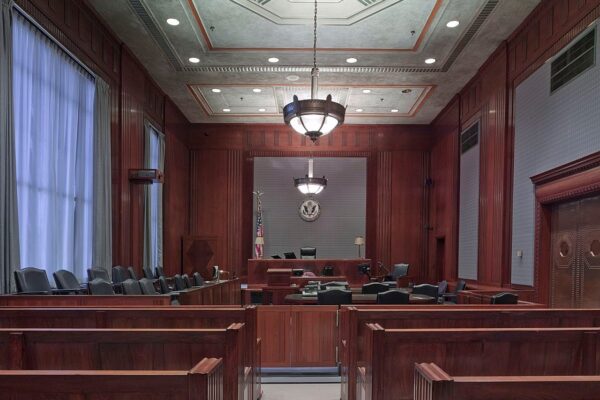In a Thursday evening ruling, the First Circuit Court of Appeals declared unconstitutional the government’s practice of forcing detained immigrants to prove why their continued detention is unjustified. The landmark ruling comes in a lawsuit filed by the ACLU of New Hampshire, and is the result of years of litigation by ACLU attorneys, their cooperating counsel, and other advocates.
The ruling coincides with an ongoing federal class action lawsuit filed by the ACLU affiliates in Massachusetts and New Hampshire. In 2018, the ACLU and its cooperating counsel successfully advocated in Boston federal court that the government must bear the burden of proof in immigration bond hearings. The government, however, continued its unlawful practices in the immigration court. Then, in 2019, the ACLU and its cooperating counsel secured a first-of-its-kind class action victory that ended the government’s detention by default practice throughout New England by requiring the government to bear the burden of proof, consider conditions of release, and consider someone’s ability to pay when setting a bond amount. The Trump administration appealed that class action victory in 2020, and the appeal is currently pending before the First Circuit Court of Appeals.
The First Circuit’s ruling yesterday makes clear that this class action victory correctly and successfully protected thousands of people for over a year and a half as they faced an unjust bond system rigged to unlawfully deprive them of their most basic rights.
Dan McFadden, staff attorney at the ACLU of Massachusetts, today released the following statement in response to the new First Circuit decision:
“For too long, the government has systematically detained people without showing a good reason for doing so. This baseless practice deprives community members of their constitutional rights, disrupts their lives, and fails to treat them with the dignity they deserve. This new decision affirms that the government’s approach to immigration detention is contrary to our fundamental values and the law.”
Stay Informed
Sign up to be the first to hear about how to take action.
By completing this form, I agree to receive occasional emails per the terms of the ACLU’s privacy statement.
By completing this form, I agree to receive occasional emails per the terms of the ACLU’s privacy statement.



